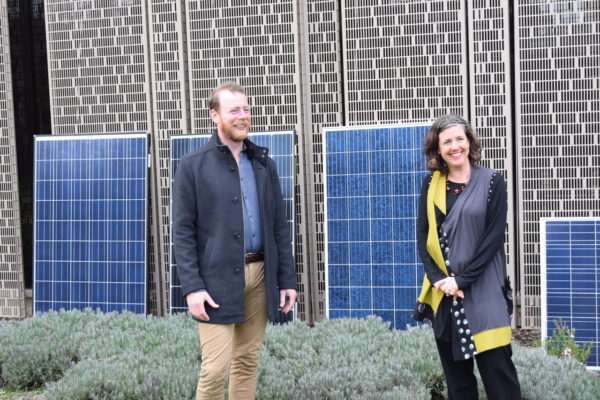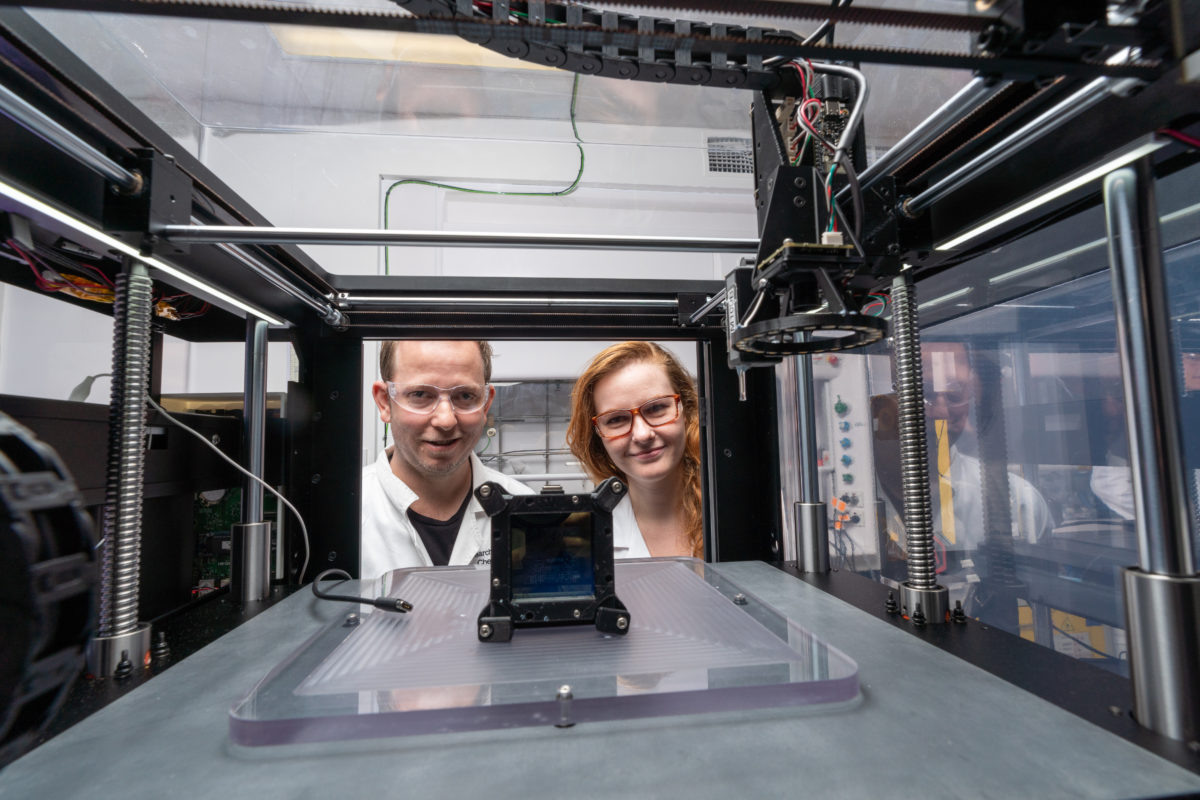The Australian Capital Territory (ACT) government has announced the winners from the third round of its $12 million Renewable Energy Innovation Fund (REIF). In total, it awarded $1,234,451 to six local companies.
The grants provide early-stage funding to businesses operating in the ACT that are seeking to commercialise technologies and projects capable of helping the country realise its targets.
The six funded companies include:
Syenta/Spark3D – $254,184
This Canberra-based startup has developed a 3D printer capable of printing highly complex and functional electronics like photovoltaics, batteries, sensors and more, and promises to do so in ways that are faster, cheaper and use less energy.
“We call it a printer for electronics but really its a multi-material additive manufacturing technology. You can literally make anything you want,” Ben Wilkinson, Syenta’s head of research and development, told pv magazine Australia last year. At that time, the company was preparing for feedback on initial printer design, which can be used to build electronic prototypes, before raising additional capital to realise the next steps of commercialisation.
The company is a spinoff from research conducted at the Australian National University (ANU). In 2022, the startup changed its name from Spark3D to Syenta.
PV Lab Australia – $214,374
Unlike the other winners, PV Lab is not a new startup and has been operating a commercial solar testing lab in Canberra for some years now.
It received funding for its project which seeks to reduce the number of solar panels going to landfill by addressing causes of panel degradation and barriers to reuse. The project will look at the cause, scale and solutions to panels breaking down in high-humidity climates. It will also consider solutions for reusing panels through refurbishment, monitoring and assessing viability.

Image: Matthew Holding
Today many of Australia’s secondhand panels are exported to Africa to be resold. Since most of Australia’s current solar waste is not from systems reaching their end of life, but rather households upgrading, many used panels function well and can be repurposed. The issue that Australia’s resale industry doesn’t seem to be regulated at all. Pv magazine Australia has heard from a number of people within the industry that the primary process for assessing panels prior to export is visual assessments – that is, people simply look at them.
PV Lab was also awarded a $220,000 grant through the ACT’s Innovation Fund in 2020 to expand its solar testing in Canberra.
Hydrogen Renewable Energy Australia (HYREA) – $253,552
Startup HYREA has developed a novel approach to producing green hydrogen, which it says can be performed on-site and on-demand. According to the company’s website, the process, like electrolysis, extracts hydrogen from water and other suitable liquids. “Using the latest technology, we create a reaction between water and certain solid input materials – which we are calling Solid Hydrogen Cells (SHC),” the company says.
“Specifically, we generate a substitution reaction between water and the material – a by-product of this reaction is a controlled release of pure hydrogen.”
“The input material, or SHC, plays a double role in the process: as a chemical agent that extracts hydrogen from water through substitution reactions and as a compact chemical storage allowing us to effectively deliver hydrogen,” HYREA says.
Using the ACT government funding, HYREA intends to develop a proof-of-concept hydrogen fuel-cell electric boat with on-board hydrogen production facilities.
Zeppelin Bend – $250,000
Zeppelin Bend has been awarded the funding to develop its ‘Community Energy Opportunity Toolkit’. The project aims to build a web based tool to identify, prioritise, and analyse network constraints which can be used to select ideal locations for community batteries.
This will hopefully enable locations for high-value distribution network-connected battery projects to be mapped. Once identified, these locations maximise the value available to battery projects.
Flex-G – $180,000
Flex-G is seeking to extend the lifespan of batteries through enhanced thermal management.
One of the leading causes of primary degradation in batteries is insufficient thermal control, ACT government says. To combat this, Flex-G will adapt its nano-coolant technology to limit thermal shocks in batteries.
Aqacia – $82,341
Aqacia has developed a proof-of-concept for applying machine learning, or AI, to perform quality control of solar panels using image recognition and classification. The technology is on the cusp of commercial readiness, the ACT government says.
The company’s PV 4.0 project will take this proof-of-concept into commercial trials which will see machine learning tools deployed into workflows currently relying on human assessment.
“The project will then serve as a demonstration to export this ACT-created solution globally,” the ACT government says.
This content is protected by copyright and may not be reused. If you want to cooperate with us and would like to reuse some of our content, please contact: editors@pv-magazine.com.









By submitting this form you agree to pv magazine using your data for the purposes of publishing your comment.
Your personal data will only be disclosed or otherwise transmitted to third parties for the purposes of spam filtering or if this is necessary for technical maintenance of the website. Any other transfer to third parties will not take place unless this is justified on the basis of applicable data protection regulations or if pv magazine is legally obliged to do so.
You may revoke this consent at any time with effect for the future, in which case your personal data will be deleted immediately. Otherwise, your data will be deleted if pv magazine has processed your request or the purpose of data storage is fulfilled.
Further information on data privacy can be found in our Data Protection Policy.